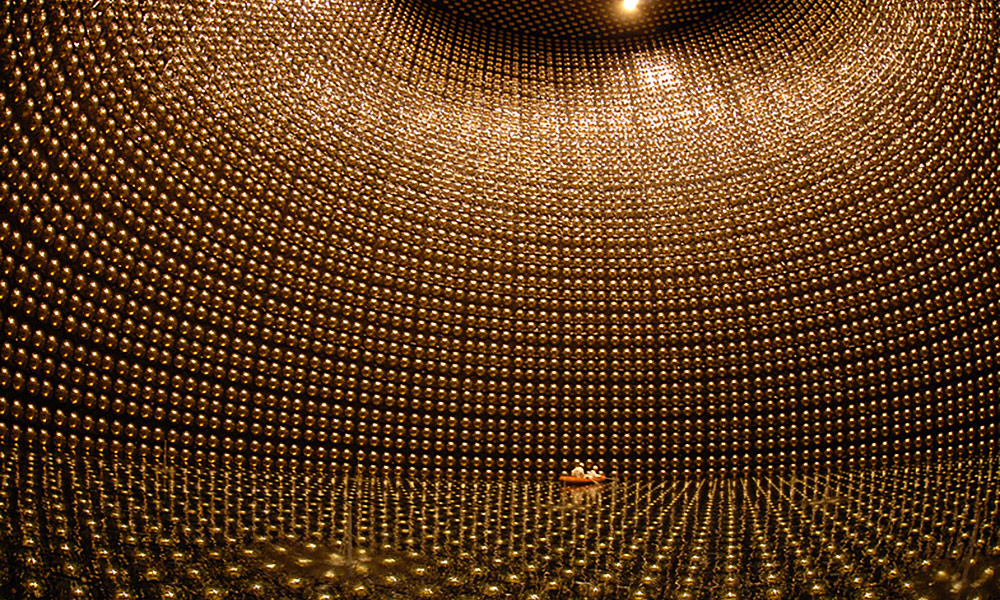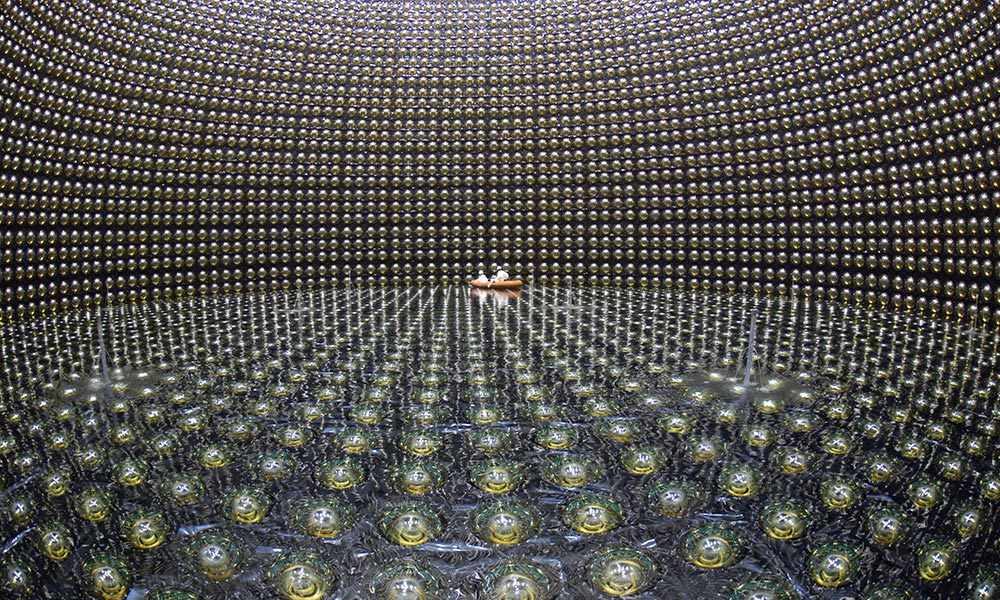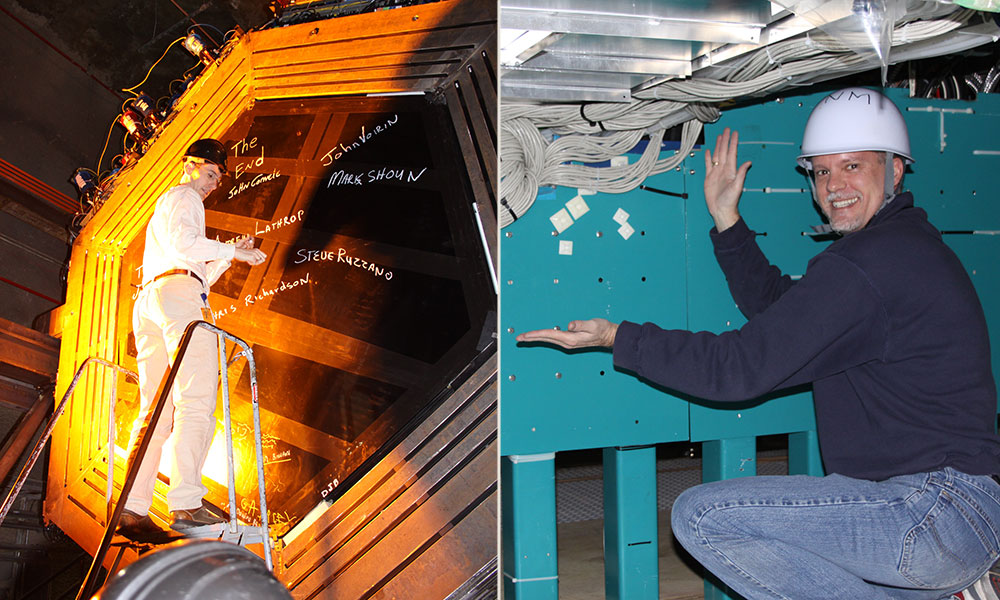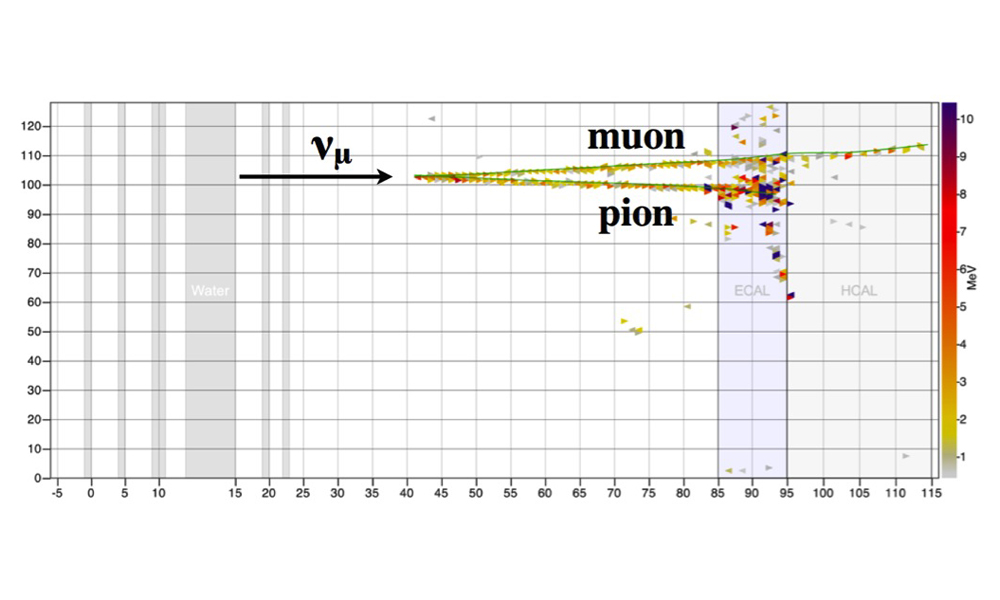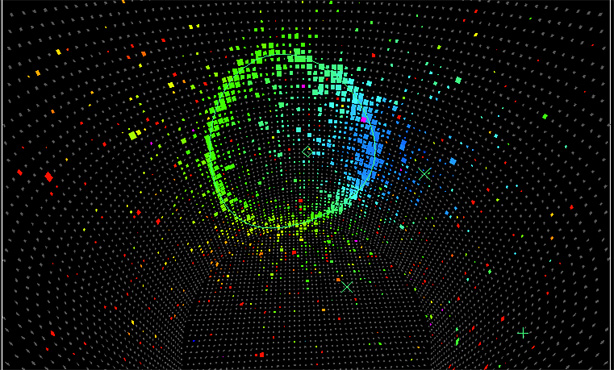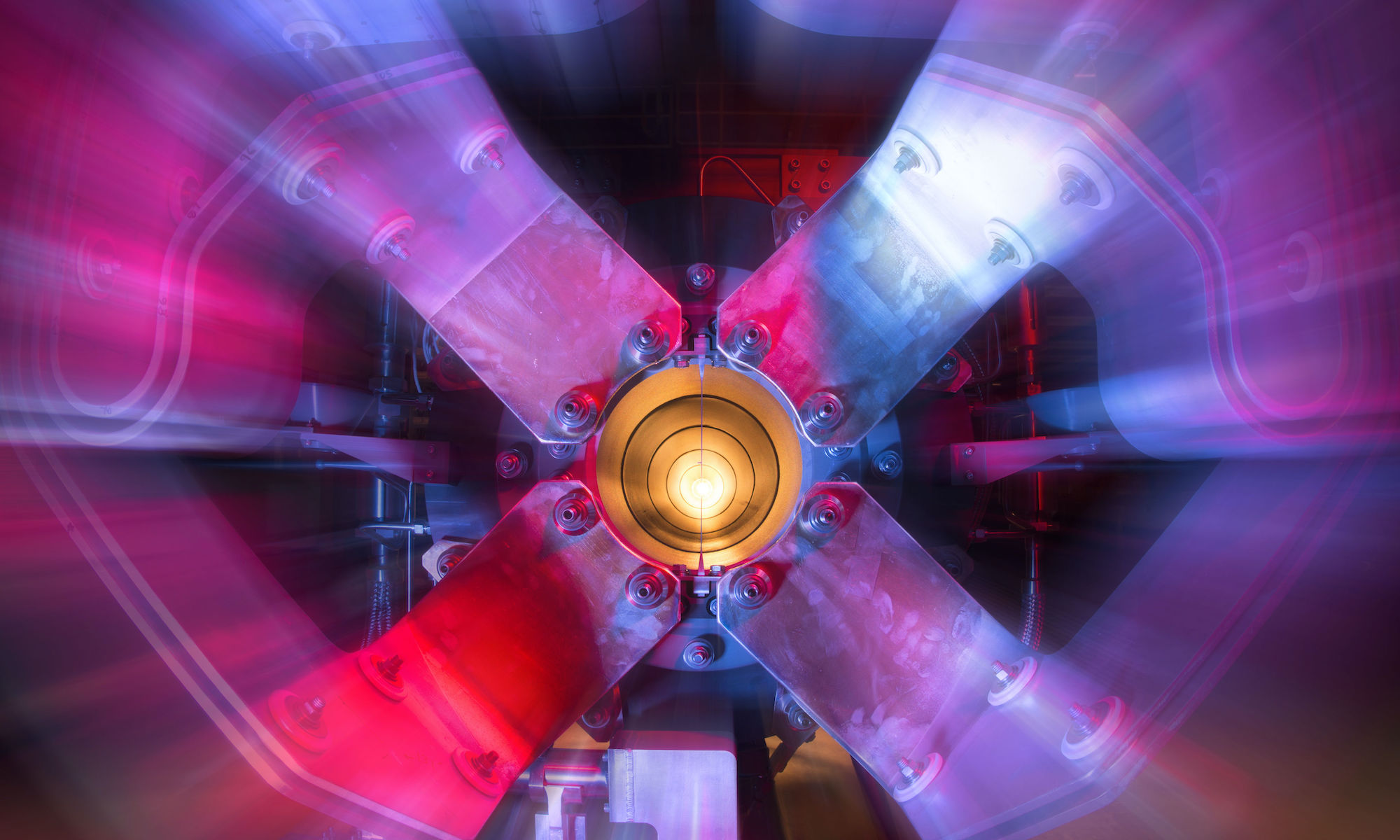
Science & Technology
Rochester research with ‘ghostly’ neutrinos among Physics World’s breakthroughs of the year
December 7, 2023
Led by researchers from the University of Rochester, scientists from the international collaboration MINERvA have, for the first time, used a beam of hard-to-detect neutrinos to investigate the structure of protons.

